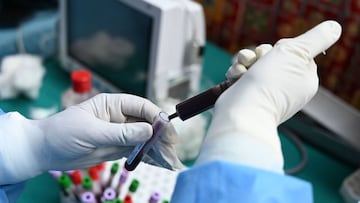SCIENCE
Are DNA tests accurate? What will they tell me about my ancestry?
Online DNA tests can be quite accurate when it comes to determining your ancestry though the accuracy of a DNA test largely depends on the technology used.

Over the past decade, advancements in DNA testing technology have made it more accessible and affordable to the general public. Companies like 23andMe and AncestryDNA have made it easy for people to discover lost family histories and even link up families torn asunder by dictatorship.
Many people are naturally curious about their origins and ancestral heritage; DNA tests have the answer. They break down your genetic ancestry into percentages from different regions or populations around the world. It can include information about countries, sub-regions, or even specific tribes or ethnic groups.
A crucial part of this are hablogroups. These are groups of individuals who share a common ancestor on a specific branch of the human family tree. DNA tests can identify your paternal and maternal haplogroups, providing insights into the ancient origins of your direct paternal and maternal lines.
The two main types of DNA tests commonly used for ancestry
Autosomal DNA tests: These tests examine the DNA from both sides of your family and provide a breakdown of your ancestry, typically into percentages from different regions or populations. They can give you insights into your genetic heritage going back several generations. The accuracy of these tests is generally high, but the results can vary depending on the size and diversity of the reference database.
Y-DNA and mtDNA tests: These tests focus on specific types of DNA passed down along paternal and maternal lines, respectively. They can be used to trace direct paternal or maternal ancestry back many generations. However, these tests may have limitations in providing a comprehensive view of your overall ancestry because they only look at specific ancestral lines.
What makes DNA tests more accurate?
Some factors that can affect the accuracy of DNA tests include:
- Database size: A larger and more diverse database improves the accuracy of the results.
- Regional representation: The accuracy can vary based on how well-represented certain regions or populations are in the database.
- Reference populations: The quality and number of reference populations used to compare your DNA can influence the specificity of your results.
- Genetic admixture: If your ancestry includes mixed heritage from different regions, it may be more challenging to pinpoint specific ethnicities accurately.






